Application Guidelines
Global Frontier and Interdisciplinary Research Core for Deepening Investigations and Promoting Collaboration in Chemistry-oriented Fields
2025 Call for Proposal of Joint Research Projects
Institute for Chemical Research (ICR) has vigorously pressed forward its frontier and advanced research in diverse fields surrounding chemistry to “Excel in the Investigation of Basic Principles of Chemistry and Their Applications.” From fiscal years 2018 to 2021, the ICR advanced domestic and international research projects as an international Joint Usage/Research Center (iJURC), proclaiming “Global Frontier and Interdisciplinary Research Core for Deepening Investigations and Promoting Collaboration in Chemistry-oriented Fields.” In 2021, the Ministry of Education, Culture, Sports, Science and Technology (MEXT) of Japan favorably evaluated the activities of ICR-iJURC to renew the iJURC. By applying such achievements, ICR will energetically continue to advance its activities to develop global chemical collaborating research.
To promote fundamental and applied chemistry research considering the needs from the global chemical society, ICR currently invites proposals for 2025 iJURC research projects in fields related to chemistry as detailed below. Proposals of research projects in the following four categories are welcome: field-specific (pre-planned) research, proposal–based research, promotion of collaborative and multidisciplinary research, and facilities and equipment use. These projects should be conducted in conjunction with a full-time faculty member(s) or a visiting faculty member(s) of ICR, and any adopted proposal can utilize our shared facilities, equipment, and resources. Any project categories may include researchers from abroad as principal investigators and/or collaborating researchers (international collaborations) and from Japan (domestic collaborations).
We are looking forward to receiving your proposals. Please kindly read the details of this call for proposals carefully before applying.
SHIMAKAWA, Yuichi
Head, ICR-iJURC Collaborative Station
ONO, Teruo
1. Research period
One year (from April 1, 2025 through March 31, 2026)
2. Research Project Categories
We are seeking proposals in the following four categories: field-specific (pre-planned) research, proposal-based research, promotion of collaborative and multidisciplinary research, and facilities and equipment use. Regardless of the category, please contact either the ICR member who is in charge of the relevant category (or research field) or your intended ICR partner researcher before preparing your proposal. For budget information, please refer to Table 1 (Overview of Joint Use/Joint Research Budget for 2025).
2-1. Field-specific (pre-planned) Research
Field-specific (pre-planned) research is jointly conducted with ICR researcher(s) in fields specified by ICR. For 2025, we are welcoming proposals in the following seven fields. We plan to adopt a total of approximately 50 projects for these 7 fields (25 projects for exploratory research, and 25 projects for advanced research).
2-1‐1. Field-specific (Basic Field) Research
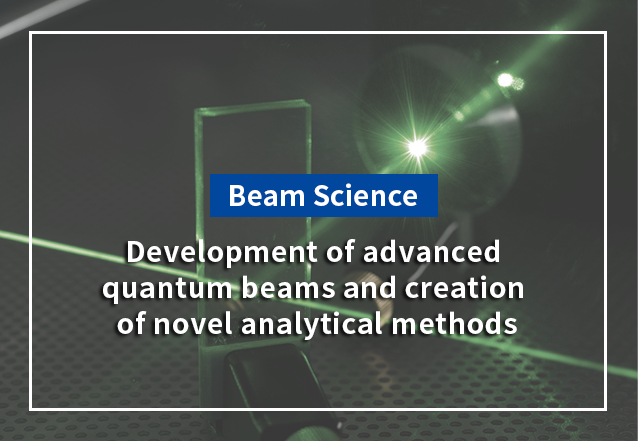
Beam Science
(Person in Charge: Prof. WAKASUGI, Masanori, wakasugi.masanori.8z@ kyoto-u.ac.jp)
Core topics: Development of advanced quantum beams and creation of novel analytical methods
Objectives: This field endeavors development of advanced quantum beams such as laser, X-ray, electron beam, ion beam, and its application to advanced diagnostic analysis method. Additionally, we aim to investigate ultra-fast chemical and physical phenomena in microscopic region by using these quantum beams in a complex manner.
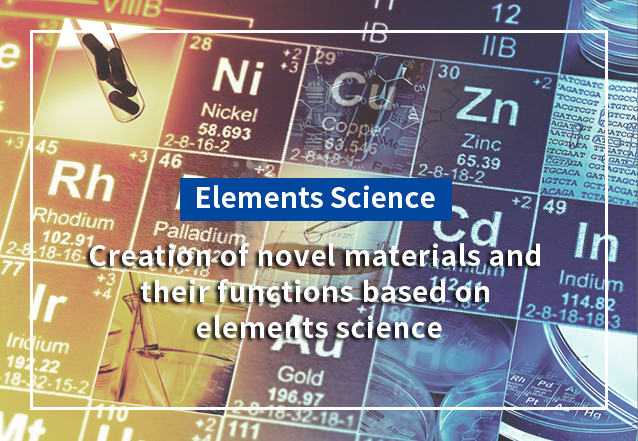
Elements Science
(Prof. OHKI, Yasuhiro, ohki@scl.kyoto-u.ac.jp)
Core topics: Creation of novel materials and their functions based on elements science
Objectives: This field endeavors to elucidate the characteristics of elements, to elicit unknown characteristics of such elements, and to develop novel materials possessing excellent features due to newly found characteristics. Considering that synergistic effects of the component elements result in material functions, we aim to establish scientific methodologies to clarify the synergy of elements, and ultimately to create new functions which can contribute to solve the social issues.
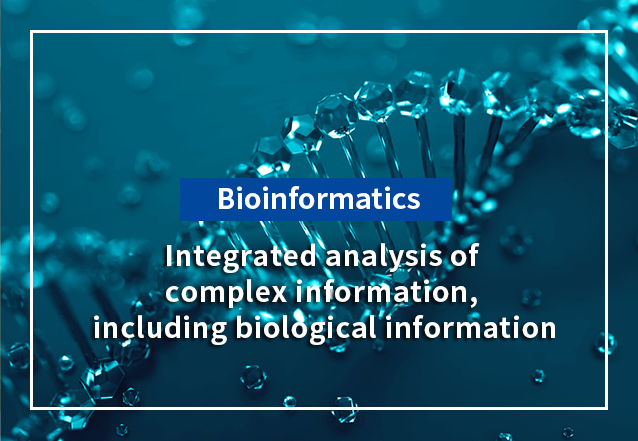
Bioinformatics
(Person in Charge: Prof. AKUTSU, Tatsuya, takutsu@kuicr.kyoto-u.ac.jp)
Core topics: Integrated analysis of complex information, including biological information
Objectives: This field strives to deepen knowledge of chemical aspects in biological systems by investigating how biological information is related to chemical phenomena in a living organism using the latest biological information such as genomes and metagenomes. Ultimately, we aim to apply this knowledge to genomic drug discovery and personalized medicine.
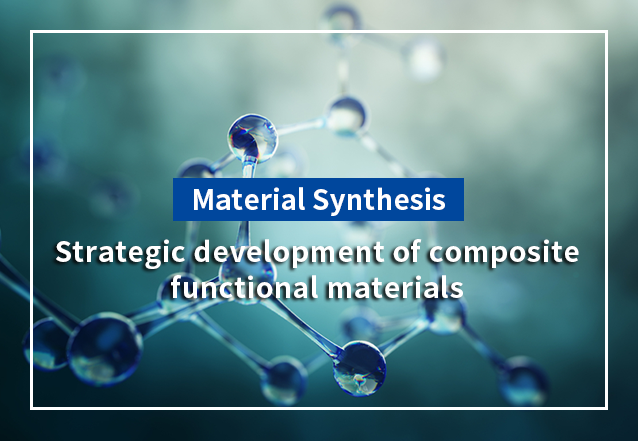
Material Synthesis
(Person in Charge: Prof. MURATA, Yasujiro, yasujiro@scl.kyoto-u.ac.jp)
Core topics: Strategic development of composite functional materials
Objectives: This field aims to develop next-generation materials and molecular systems with novel functionalities. Our research emphasizes to synthesize of hybrids, composites, different materials in nano-scale. We also strive to elucidate the chemical interactions between functional materials and biological phenomena by treating biological tissues, such as biological membranes, which exhibit various functions such as recognition, response, and reaction in biological bodies.
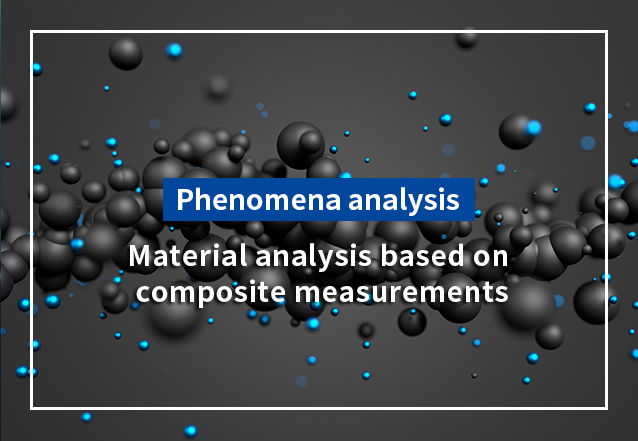
Phenomena analysis
(Person in Charge: Prof. HASEGAWA, Takeshi, htakeshi@scl.kyoto-u.ac.jp)
Core topics: Material analysis based on composite measurements
Objectives: This field strives to obtain a hierarchical understanding and description of natural and artificial materials using a variety of spectroscopic and analytical methods based on chemistry. The results will be used to establish a novel framework for materials science.
2-1‐2. Field-specific (Special Field) Research
Quantum information • Spintronics
(Person in Charge: Prof. ONO, Teruo, ono@scl.kyoto-u.ac.jp)
Core topics: Quantum information and spintronics
Objectives: This field aims to integrate and develop classical information and quantum information technologies by creating new science and technology in physics, applied physics, electronic engineering, magnetic engineering, material science, chemistry, information science and their boundary areas and establish the foundation for information technology required in Society 5.0 and post-corona society.
Spin-Life Frontier Hub
(Person in Charge: Prof. YAMAGO, Shigeru, yamago@scl.kyoto-u.ac.jp)
Core topics: Synthesis and analyses of molecular probes for magnetic resonance imaging (MRI)
Objectives: This field aims at innovation in MRI and related fields, including synthetic studies of
molecular probes, as well as fundamental research leading to bioimaging with spin probes, as well as
fundamental research with the potential to improve the sensitivity of MRI. Research topics need not
be directly related to MRI at this time, but are encouraged to be relevant to MRI in the long term.
2-2. Proposal-based Research
(Person in Charge: Prof. TERANISHI, Toshiharu, teranisi@scl.kyoto-u.ac.jp)
This category invites proposals from either chemists from multidisciplinary research areas in the above five field-specific research fields or other research fields. Approximately 40 projects will be adopted: 20 exploratory research and 20 advanced research projects. We especially welcome projects that may lead to a novel field in chemistry. Additionally, projects deemed to be of the utmost urgency and importance may be adopted immediately regardless of the aforementioned application deadline.
2-3. Promotion of Collaborative and Multidisciplinary Research
(Person in Charge: Prof. KURIHARA, Tatsuo, kurihara@scl.kyoto-u.ac.jp)
This category is primarily aimed at strengthening collaborations in chemistry and related fields between researchers in Japan and those around the world. This category accepts proposals in which the principle investigator will seek international research collaborations with foreign institutes that have signed a General Memorandum for Academic Cooperation and Exchange with the ICR. (See http://www.kuicr.kyoto-u.ac.jp/sites/icr/international/ for more details.) Additionally, we welcome proposals that intend to organize a meeting or symposium for future international collaborations. Approximately five projects will be adopted.
2-4. Facilities and Equipment Use
(Person in Charge: Prof. FUTAKI, Shiro, futaki@scl.kyoto-u.ac.jp)
Facilities and equipment use projects are collaborative research that are mainly aimed at using ICR’s shared facilities, equipment, and resources, which are listed on our website (http://www.kuicr.kyoto-u.ac.jp/sites/icr/research/joint-usage/kaken_kyodo_instr/). Approximately 15 projects will be adopted.
Table 1. Overview of the International Joint Use/Joint Research Budget for 2025
| International collaboration | Domestic collaboration | |
| Field-specific research (exploratory) | 1,000 | 800 |
| Field-specific research (advanced) | 2,000 | 1,500 |
| Proposal-based research (exploratory) | 1,000 | 800 |
| Proposal-based research (advanced) | 2,000 | 1,500 |
| Promotion of collaborative and multidisciplinary research | 1,000 | 800 |
| Facilities and equipment use | 1,000 | 800 |
*Notes: These figures are just for reference. The amount of support will be adjusted depending on the overall budget.
Applicants and their ICR partner researchers should determine the budget allocation for equipment, consumables, and travel. In particular, when determining the travel budget, the specific circumstances of the research teams’ locations should be taken into account.
3. Collaborative Research Proposal Guidelines
3-1. Qualifications
Full-time (or equivalent) researchers at a university (national, public, or private), a research institute (national, public, or private), or an independent (or equivalent) administrative agency
3-2. How to Prepare an Application Form
Prior to submitting your application, you should discuss the research objective, scope, and budget with either
ICR member in charge of your proposal research field or category, or your intended ICR member(s). You should be selected from the ICR full-time or visiting faculty members in 2025. Please refer to the ICR website (Faculty Members | Institute for Chemical Research, Kyoto University (kyoto-u.ac.jp)) for a list of faculty members.
If you are having trouble determining an appropriate joint researcher, please consult with the ICR member in charge of your proposal research field or category for assistance. The maximum budgets indicated in Table 1 are for your reference. When you consult with your selected ICR member(s), your conversation should include a detailed breakdown of the budget for equipment, consumables, and travel should be included. In particular, when determining the travel budget, make sure to consider the locations and circumstances of all researchers on your team.
Please submit the relevant application form (from the following four forms) to Joint Research Promotion Office at ICR via the ICR partner researcher: Proposal Application Form for Field-specific Research (Form 1, MS Word/PDF), Proposal Application Form for Proposal-Based Research (Form 2, MS Word/PDF), Proposal Application Form for Promotion of Collaborative and Multidisciplinary Research (Form 3, MS Word/PDF), and Proposal Application Form for Facility and Equipment Use (Form 4, MS Word/PDF). (Submission procedure will be changed.)
Any categories may include researchers from abroad. If your group includes researchers from abroad, check the box in the upper left corner of the appropriate form.
namely
1. Fields marked with * are for internal use. Please leave them blank.
2. Always fill out the name and contact details of your intended ICR.
3. Roles of the Applicant (namely principal investigator of the proposal project) and the ICR partner researcher and collaborating researchers should be clarified. All researchers must agree with their assigned roles before submitting the application.
4. Please complete the proposal application form within 3 pages.
5. Please submit the relevant application form to Joint Research Promotion Office at ICR via the ICR partner researcher.
3-3. Application Deadline and Submission Address
Completed application forms should be submitted in a MS Word format by email to the following email address by Friday, January 17, 2025.
Submission Contact:
Joint Research Promotion Office, ICR, Kyoto University
Email: icr-hub@scl.kyoto-u.ac.jp Phone: +81-774-38-3104
4. Project Selection Procedure and Notification of Adoption
A jury established in ICR will initially screen all applications. The governing council of ICR will make the final decision. The evaluation is comprehensive; it considers not only the proposal itself, but also the budget allocation and the length of intended use of the ICR facilities, equipment, and resources. Although the offer is tentative, the applicant (principal investigator) will be notified of the results in March 2025.
5. Conducting Projects and Reporting Research Outcomes
5-1. Research Budgets
The budget will consist of a research budget (equipment and consumables) and travel budget for the principal investigator and the ICR partner researcher. A travel budget is also provided for collaborating researchers, which can be students†. Please contact your ICR partner researcher to start your collaborative research project. Note that ICR does not have accommodations for collaborating researchers to stay.
† When you include a collaborating researcher who is a student, he/she should, in principle, be a graduate student. Student participants must be covered by accident insurance or equivalent.
5-2. Research Outcome Reports
A research report should be submitted for adopted projects according to the guidelines shown below. The submitted report will be published as a part of the ICR International Joint Usage/Research Center research report. Additionally, principal investigators may be asked to give a presentation on the outcomes at a workshop. Details about presentations will be later provided to the principal investigator.
5-3. Result Report Format
A one-page report for a field-specific research project, proposal-based research project, and facilities and equipment use project, or a two-page report for a promotion of collaborative and multidisciplinary research project is required using (Form 5, MS Word/PDF). An A4 sheet accommodates texts up to approximately 1,000 words. Figures and tables may be in color, but please note that the report can be published in black and white.
The research project title should be centered on the first line of the first page. The name and affiliation of the principal investigator should be on the third line as right aligned, and the main text should start from the fifth line. Your ICR partner researcher should not be listed as a co-author of your project. Instead, mention your ICR partner researcher’s name in the main text as needed. If your project is an international collaboration, please prepare your report in English.
5-4. Report contents
Although you are not required to use a specific format, we suggest, for example, that an experimental project includes the following sections: objectives, experimental methods, experimental results, discussion, and outcome reports (papers, presentations, etc.). If you organize a workshop or meeting as part of a promotion of collaborative and multidisciplinary research project, please attach the program, a list of participants (with affiliations, organizations, and titles) and a summary or proceedings (if any) of such activities to your research report.。
5-5. Report submission
Your report must be submitted by the end of February 2026 by email to the following email address (Word and PDF files). The files should be named “project code + principal investigator’s family name.”
Inquiries:
Joint Research Promotion Office, ICR, Kyoto University
Email: icr-hub@scl.kyoto-u.ac.jp
Phone: +81-774-38-3104
5-6. Disclosure of Research Outcomes
When you present your research outcomes as a journal article or other means, please acknowledge that it is the result of an International Joint Usage/Research project with ICR, Kyoto University. Below is an example of an acknowledgment in English.
This work was supported by the International Collaborative Research Program of Institute for Chemical Research, Kyoto University (grant # XXXX) Your acknowledgment in Japanese should be equivalent to this sentence.
